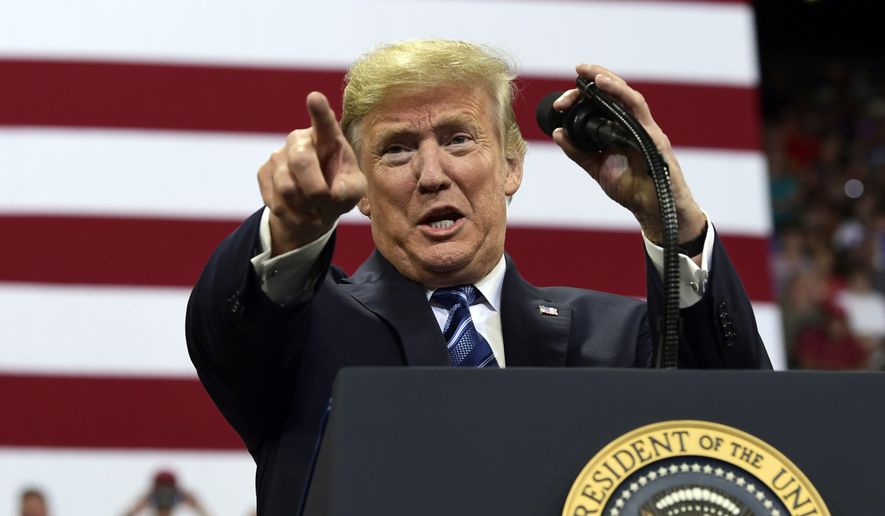President Trump on Sunday heralded a CNBC report about Ford Motor Company abruptly killing a plan to sell a Chinese-made small vehicle in the U.S. as evidence his tariff war was working, though Ford itself promptly threw cold water on his brag.
“This is just the beginning. This car can now be BUILT IN THE U.S.A. and Ford will pay no tariffs!” Mr. Trump tweeted.
But later Sunday, the automaker said the car, a crossover named Focus Active, would not be built in the U.S. now that the China deal was off.
“It would not be profitable to build the Focus Active in the U.S. given an expected annual sales volume of fewer than 50,000 units and its competitive segment. Ford is proud to employ more U.S. hourly workers and build more vehicles in the U.S. than any other automaker,” Ford said in a statement.
As a result, Ford won’t sell the vehicle at all in the United States.
The 25 percent tariffs on auto imports from China, which Mr. Trump was hoping Ford would shift production to avoid, was part of a series of taxes imposed July 6 on $34 billion on a series of Chinese imports.
Last month, the U.S. imposed tariffs on another $16 billion in Chinese goods, and is preparing fees on another $267 billion worth.
Mr. Trump said Friday that the new tariffs are “ready to go.”
“If the U.S. sells a car into China, there is a tax of 25%. If China sells a car into the U.S., there is a tax of 2%. Does anybody think that is FAIR? The days of the U.S. being ripped-off by other nations is OVER!” he tweeted.
China threatened to retaliate if the Trump administration goes forward with the new 25 percent tariffs, and Beijing has responded tit-for-tat to every previous round with tariffs on U.S. products.
The Trump administration is using the tariffs to force China to abandon unfair trade practices and the theft of American intellectual property, but Beijing hasn’t budged.
The escalating trade war between the world’s two largest economies rattled investors and business leaders.
In April, Ford announced plans to stop making cars in the U.S. — except for the iconic Mustang — and to focus on more profitable SUVs. It stopped making Focus sedans at a Wayne, Michigan, plant in May.
The plan, said industry analyst Ed Kim of AutoPacific, was to pare down the Focus lineup to Active wagons and import them from China.
“Without the tariffs, the business case was pretty solid for that model in the U.S. market,” Mr. Kim said.
⦁ This article was based in part on wire-service reports.
• S.A. Miller can be reached at smiller@washingtontimes.com.




Please read our comment policy before commenting.